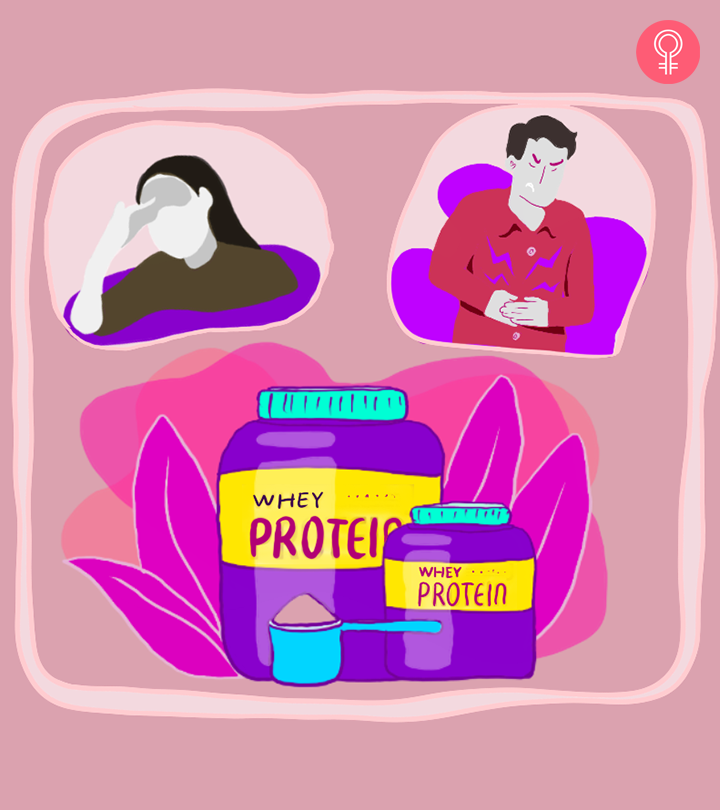10 Reasons We Feel Tired Just After Eating

Image: Shutterstock
We all have our own fair share of struggles that we endure every day, but some can make you want to give up and take that long-due afternoon nap. This happens especially when you fill your tummy with your lunch and your body wants to go into sleeping beauty mode. But why do we feel tired and sleepy after eating? Since food is our main source of energy and should be pumping us to work, this sleepiness may make us wonder why it happens. In this article, we’ll explore some reasons why we may feel tired after eating. Read on for some practical insights into how to combat post-meal fatigue for a more energized day!
In This Article
1. Digestion Process
Imagine your body as a well-organized team working together to process and digest the food you eat. When you have a meal, your body diverts energy to the digestive system to break down and absorb nutrients. This increased blood flow and energy allocation to the stomach can leave you feeling a bit drained and lethargic.
2. Carbohydrate Intake
We all love indulging in our favorite comfort foods and desserts, but consuming a meal rich in carbohydrates, especially those high in refined sugars and processed grains, can cause a rapid spike in blood sugar levels. This is followed by a subsequent drop, triggering fatigue and drowsiness. Opting for complex carbohydrates with fiber, such as whole grains and vegetables, can help stabilize blood sugar levels and prevent those energy crashes.
3. Portion Sizes
Raise your hand if you’ve ever fallen victim to the irresistible allure of an extra-large portion of your favorite dish. Guilty as charged! But here’s the thing: overeating, especially meals that are high in fat and calories, can leave you feeling sluggish. Your body has to work harder to digest larger meals, and this temporary diversion of blood flow away from the brain can contribute to that overwhelming sense of fatigue.
4. Nutrient Distribution
Think of your body as a complex machine that needs a balance of macronutrients (carbohydrates, proteins, and fats) and micronutrients (vitamins and minerals) to function optimally. A meal lacking this balance can leave you feeling tired. To avoid this, ensure your meals contain a good mix of these components to provide sustained energy and support your overall well-being.
5. Food Sensitivities And Allergies
Sometimes, our bodies have a unique way of reacting to certain foods. Food sensitivities or allergies can contribute to fatigue and leave you feeling drained after a meal. Common culprits include gluten, dairy, and food additives. If you suspect an intolerance, it’s worth consulting a healthcare professional and considering an elimination diet to identify potential triggers.
6. Dehydration
Ever heard the saying, “Water is life”? Well, it certainly plays a crucial role in our energy levels. Inadequate hydration can cause feelings of fatigue, and sometimes we mistake thirst for hunger. So, make sure you’re drinking enough water throughout the day and stay hydrated before, during, and after meals to avoid post-meal fatigue.
7. Postprandial Hypotension
Picture this: you’ve just finished a delicious meal, and suddenly you feel dizzy or lightheaded. You might be experiencing postprandial hypotension, which is a drop in blood pressure after eating. This drop can lead to feelings of dizziness, fatigue, and even fainting (1). To mitigate this effect, try consuming smaller, more frequent meals and avoid sudden changes in position after eating.
8. Lack Of Nutrient-Dense Foods
Let’s face it, our bodies thrive on nutrient-dense foods. A diet lacking in fruits, vegetables, lean proteins, and healthy fats can lead to nutritional deficiencies that zap your energy. These deficiencies may contribute to fatigue after meals. By including a wide variety of whole, unprocessed foods in your diet, you provide your body with the fuel it needs to combat fatigue and promote overall vitality.
9. Food Choices
Certain foods contain natural sedatives that can contribute to feelings of tiredness. For example, turkey contains tryptophan, an amino acid associated with sleepiness (2). Additionally, high-fat meals and foods high in processed sugars can cause an energy crash. Being mindful of your food choices and opting for lighter, balanced meals can help prevent post-meal fatigue.
10. Lack Of Physical Activity
Living a sedentary lifestyle can contribute to feelings of tiredness after meals. Engaging in regular physical activity can boost your energy levels, improve digestion, and help regulate blood sugar levels. Consider incorporating light exercise, such as a walk, after meals to promote digestion and increase your overall energy levels.
Feeling tired after eating is common, but it’s not something we have to accept as inevitable. By understanding the factors that contribute to post-meal fatigue, we can take proactive steps to combat it and maintain a more energized day. If persistent fatigue after eating continues, it’s important to consult with a healthcare professional. With a mindful approach, we can embrace a more energized life.




























